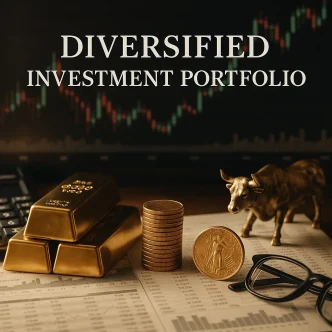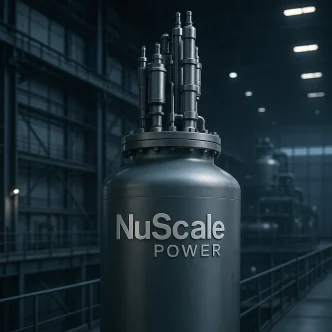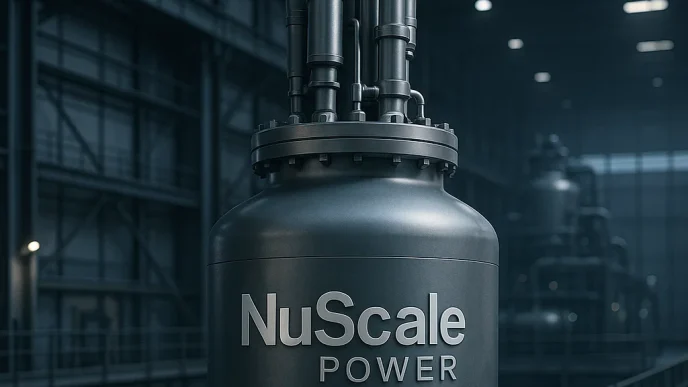Par Pacific Stock Outlook for 2025: Processing, ESG, and Cash Flow
Investors looking for sustainability, growth and participation in the energy transformation are increasingly looking to Par Pacific Holdings (NYSE: PARR). This U.S. energy company has managed to emerge as a notable player by combining oil refining, logistics, retail networks, and renewable fuel production. Its vertical integration model encompasses key stages of the value chain, allowing it to remain profitable even during periods of market volatility.
In the May 2025 report, the company presented compelling financial results and strategic achievements, reinforcing analyst and investor interest. With growing interest in ESG investments, Par Pacific’s SAF (sustainable aviation fuel) project has gained added significance. Along with this, the company’s strong cash flow, geographic diversification and independent logistics base give it a strong outlook for the future.
How Par Pacific is building a vertically integrated energy business
Strengthening through acquisitions and geographic expansion
Par Pacific has grown from the owner of a single refinery in Hawaii to a multi-segment holding company with assets in four U.S. states. Key milestones included the acquisitions of refineries in Montana, Washington and Wyoming, as well as the expansion of its retail network in the northwestern United States.
The company is purposefully building vertical integration from oil supply to the end consumer, which reduces costs and strengthens margins. Geographic diversification strengthens resilience to regional risks.
Production capacity
- Hawaii – 94 thousand barrels per day
- Montana – 63 thousand barrels per day.
- Washington – 42 thousand.
- Wyoming – 20 thousand.
- Total: 219 thousand barrels per day.
Distillate production profile as a source of margins
Prioritize distillates and LSFO
Distillates and low-sulfur fuels account for 52% of production volume. This structure improves crack spread and profit sustainability even in the face of oil price volatility. This is a strategic differentiator from gasoline-focused competitors.
Flexible commodity logistics
The company receives oil by sea and pipeline. 20% comes from Canada, 18% from the Bakken, and 6% from Powder River. The remainder is local and imported supplies. This model reduces disruption risks and allows for arbitrage opportunities.
Retail and logistics business as a profit stabilizer
A leader in Hawaii
Par Pacific operates 119 gas stations, including 87 in Hawaii. This is an island market with high margins and barriers to entry. Major brands include Hele and 76, as well as convenience store format stores – nomnom.
Financial strength of the segment
EBITDA of the retail and logistics segment reached $162 million in the last 12 months, showing growth even amid price volatility. The network stabilizes the company’s overall cash flow and makes the business less dependent on oil refining.


Renewable energy development and the SAF project
SAF plant in Hawaii
The company will invest $90 million in SAF and RD production. It expects to produce up to 61 million gallons per year, of which 60% is sustainable aviation fuel. This opens access to new markets, including international air transportation.
Synergy with the local agribusiness sector
The partnership with Pono Pacific for oilseed crops strengthens the sustainability of the chain and reduces the carbon footprint. This decision is also viewed positively by ESG funds and regulators.
Par Pacific sustainability goals
| Focus area | Target by 2030 | Progress (as of 2025) |
|---|---|---|
| SAF and RD production | >100 million gallons per year | 61 million gallons operational |
| CO₂ emissions reduction | –30% vs. 2020 baseline | –17% achieved |
| Local feedstock usage | ≥25% of total refining volume | ~18% |
Financial strength and cash flow outlook
Liquidity and debt metrics
Liquidity is above $525 million.The debt ratio is within comfortable limits. This gives the company investment flexibility and protection in case of market shocks.
Free Cash Flow (FCF)
Par Pacific expects up to $295 million FCF in 2025 with stable refining and retail operations. This opens up opportunities for share buybacks, debt reduction and ESG project financing.
EBITDA growth
Retail and logistics EBITDA by year:
- 2021 – $47 million
- 2022 – $60 mln
- 2023 – $68 mln
- 2024 – $76 mln
- LTM 3/2025 – $81 mln
SWOT analysis of Par Pacific
Strengths: high share of distillates, leadership in Hawaii, SAF project, integration of logistics and retail.
Weaknesses: regional dependence, sensitivity to crack spread.
Opportunities: ESG funds, new fuel markets, tax incentives.
Threats: regulatory changes, geopolitical disruptions in logistics, competition in SAF market.
Revenue structure by segment (LTM Q1 2025)
| Segment | Revenue share | Comment |
|---|---|---|
| Refining | 61% | Core business, high margin mix |
| Retail & logistics | 26% | Stable cash flow, brand value |
| Renewable fuels | 7% | SAF & RD project ramping up |
| Other | 6% | Includes trading and services |
Analyst valuation and market expectations
Target price target for the stock is projected to be $38-42, giving it upside potential of 15-25%. Analysts note PARR’s attractiveness as an ESG company and reliance on SAF as a long-term growth driver.
Par Pacific demonstrates a strategically thoughtful approach to growth by combining traditional refining with retail and sustainable fuel sources. The company capitalizes on local advantages, prudently manages risk and adapts to ESG trends. Its logistical flexibility, sustainable cash flow and focus on SAF make it interesting for investors focused on long-term growth and participation in energy transformation. With increasing interest in energy and green assets, Par Pacific is a strong candidate for inclusion in an investment portfolio in 2025.
On our website, you can also read expert articles on investing in artificial intelligence, the latest technology companies, and the biotechnology sector. These materials will help you gain a deeper understanding of the dynamics of fast-growing industries and select promising stocks for your long-term portfolio.














